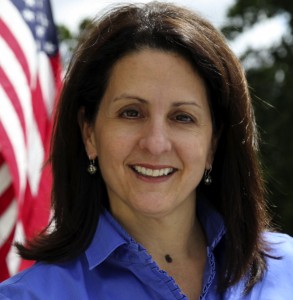
Get ready for a rant. I managed to engage in far less blogging than I’d hoped to over the course of my four days in Charlotte. Here’s what I was left with:
The convention had its moments, for sure: What I heard of Elizabeth Warren was very good, certainly by the standards of what you can get away with on national TV. Her losing to Scott Brown would be a blow as big as Russ Feingold’s loss last cycle. If genuine, incorruptible, economic populists can’t win in moderate and left-leaning districts then my continued hope for the future of our country seems particularly naive. Feingold lost to one of the very worst hacks the Tea Party put up last cycle — one who incessantly and successfully framed Feingold as a lock-step party shill, even though he had voted against financial reform from the left (because it didn’t address too-big-to-fail), was the only vote against the Patriot Act, and even cast the sole Democratic vote to try Bill Clinton during the impeachment process in 2000. (Though voted not to convict him.)
Scott Brown’s only legislative achievement is to have gotten a bill through the Massachusetts General Court outlawing public funding of sex-change operations for prisoners. FOR REAL. We shouldn’t be losing to these jokers.
Anyway, Warren is great. But it was tragic that somebody so knowledgeable about, and dedicated to the cause of, banking reform had to bite her lip and introduce Bill Clinton, whose administration was responsible for much of the deregulation of Wall Street which precipitated the Crash and whose cast of economic “experts” spent eight years twirling though the revolving doors of Manhattan’s tallest towers only to be dredged up by Obama — helping compel him to hedge, again and again, on behalf of high finance.
Clinton’s speech was, of course, gripping and brilliant, but hinged on one’s willingness to suspend disbelief and forgive the corporate shill who brought us financial deregulation, NAFTA, and all that. (At least he had the sense to veto the Joe Biden-backed bankruptcy reform bill in 2000. Bush later signed it.)
As mediocre as he’s been, Obama is right to claim superiority to Mitt Romney when it comes to domestic economic policy. Even if he’s made no move to break up the banks or hold Wall Street accountable for its crimes, Romney would manage to be even worse in these regards. Obamacare will probably be better than the status quo, even if he could’ve fought harder for a public option. There’s a real risk that Obama will implement regressive reform of Medicare or Social Security — but Romney would (try to) obliterate them. It’s good to see Obama take a more aggressive tack against Citizens United (now that he’s realized that he’s going to lose the mad dash for dollars that it’s precipitated).
In the civil liberties realm in which I now work, it’s actually difficult to imagine that Romney could be far worse than Obama: This brilliant video by Gawker was recently circulated — it has the videographer asking prominent Dems if they think that Romney’s ready to be put in charge the kill list Obama instituted. He supports the Patriot Act. He supports warrantless wiretapping. And I’m flabbergasted by his crack-down on medical marijuana — that cause is just so popular with Americans that I can’t even conceive of a cynical political calculus that could’ve driven him to take such a heavy-handed stand against it.
He’s kept us in Afghanistan, took us to war in Libya without approval from Congress, and as the Onion headline asked, could the use of flying death robots be hurting America’s reputation worldwide?
Obama’s made two recent attempts to jazz up the progressive base he once called his own: announcing his support for gay marriage and pushing through a modified version of the Dream Act. Both are genuinely wonderful developments, but we should note that neither runs contrary to the interests of finance: The Chamber of Commerce has consistently supported immigration reform — and fewer people will be helped by the Dream Act than have already been deported by Obama — who has deported immigrants at a rate about 50% faster than George W Bush.
But the most defensible reason to support Obama (at least in the swing states) is the chance that he’ll get to appoint another Sotomayor (and not a Kagan) to the Court during his continued tenure in office. Those appointees who’ve made it past an intransigent Republican Senate caucus have actually been pretty good — some of his appointees have even been willing to buck the administration when it’s the right thing to do: Katherine Forrest, whom Obama appointed just last year, has so far defied his DOJ’s attempts to defend the indefinite detention law that he signed this past New Year’s. (Demand Progress, the org I run, is helping fund the lawsuit against indefinite detention.)
This is all to say that while there are reasons to support Obama and hope that he beats Romney, it’s also imperative to remember that the national Democratic establishment leaves much to be desired. Activists must remain in constant vigilance, and push back hard against party insiders who, in large part, came to power because of their allegiance to moneyed interests. And the lack of such a nuanced understanding of the attributes and failings of our party was stark in Charlotte. I participated in a wonderful event put on by Progressive Democrats of America, which attracted several hundred attendees over the course of the first day of the convention, but that was just about it.
Absent was any broader sense of the need to — let alone a strategy by which to — push back against a Democratic establishment whose inertia has it shifting ever-further to the right (with rare exceptions like gay marriage) — a phenomenon which serves neither the interests of the party nor those of our country. (And just makes me so darned sad.)







